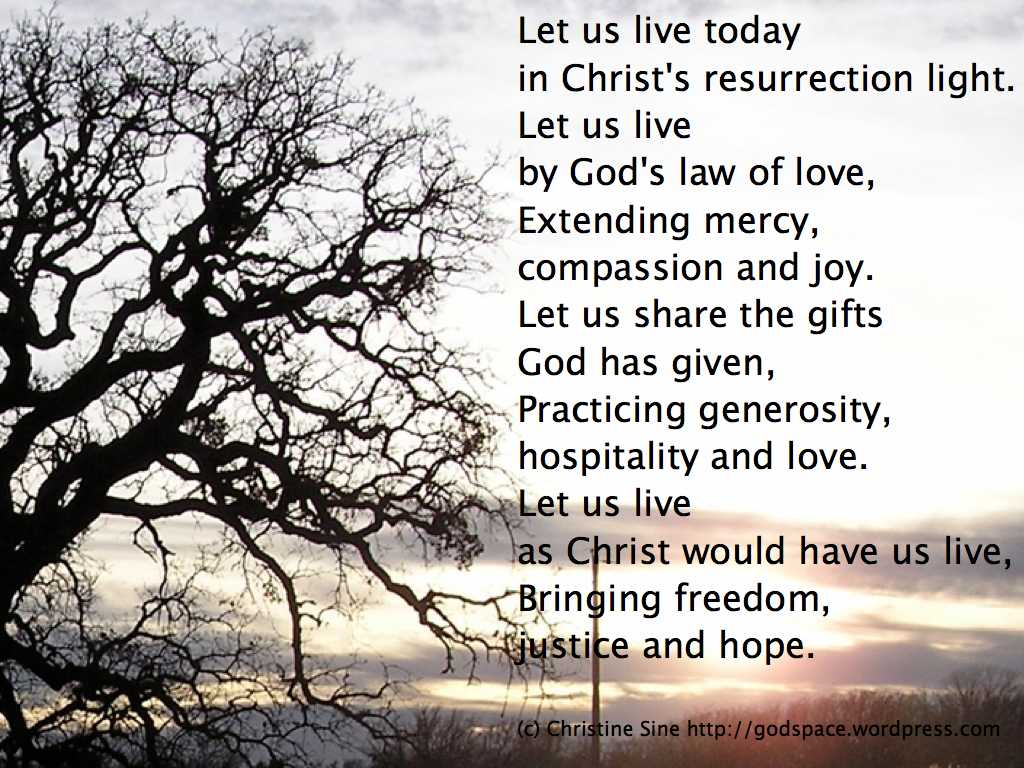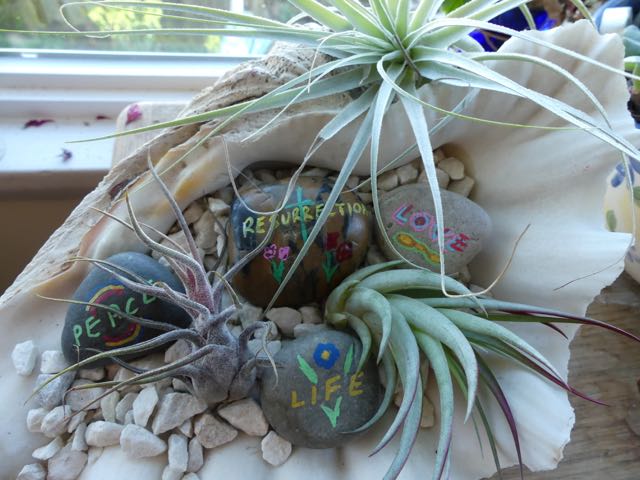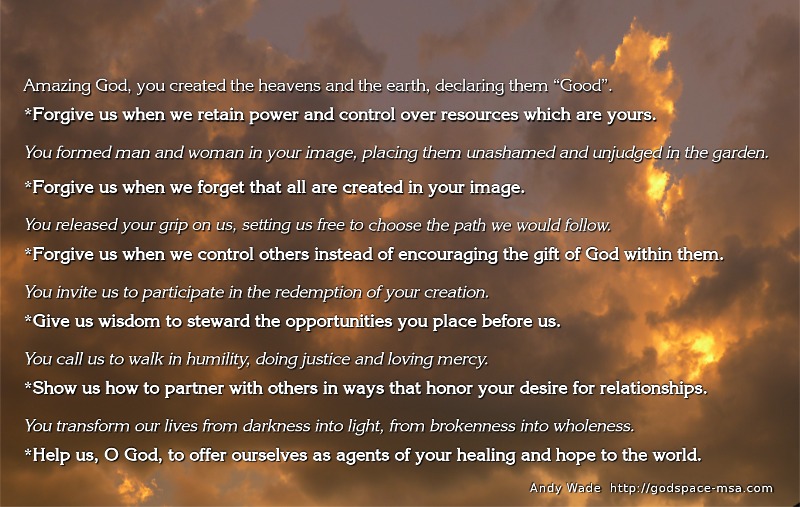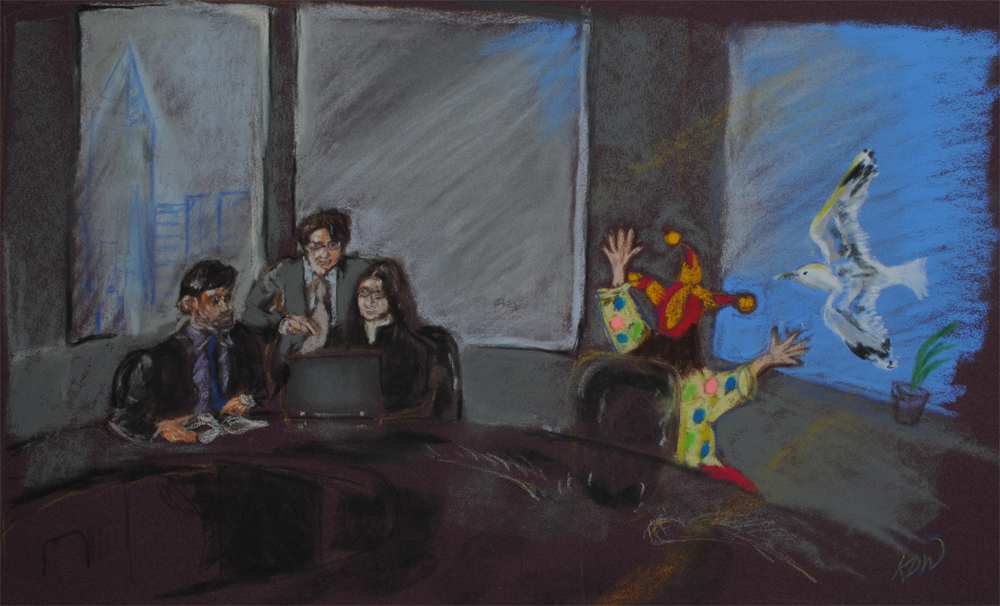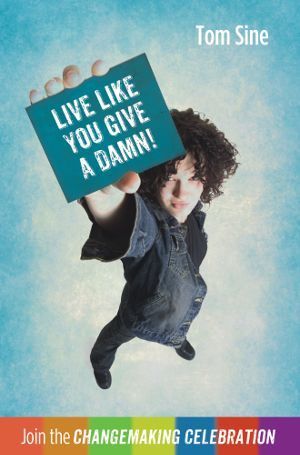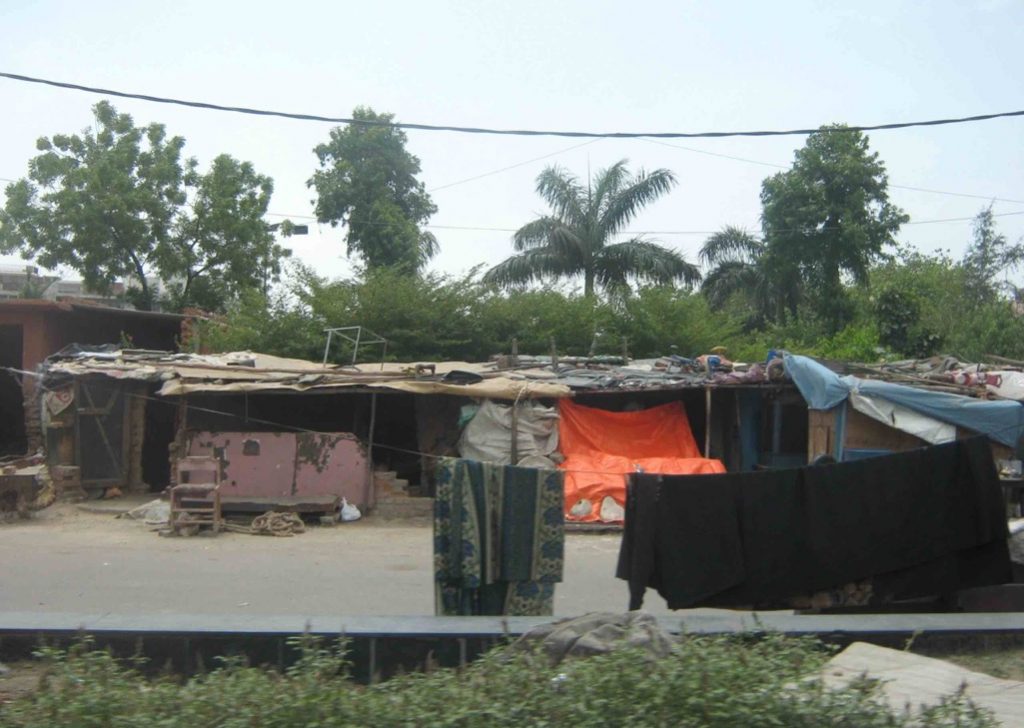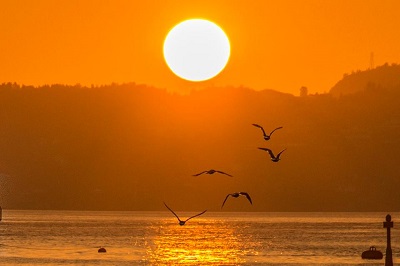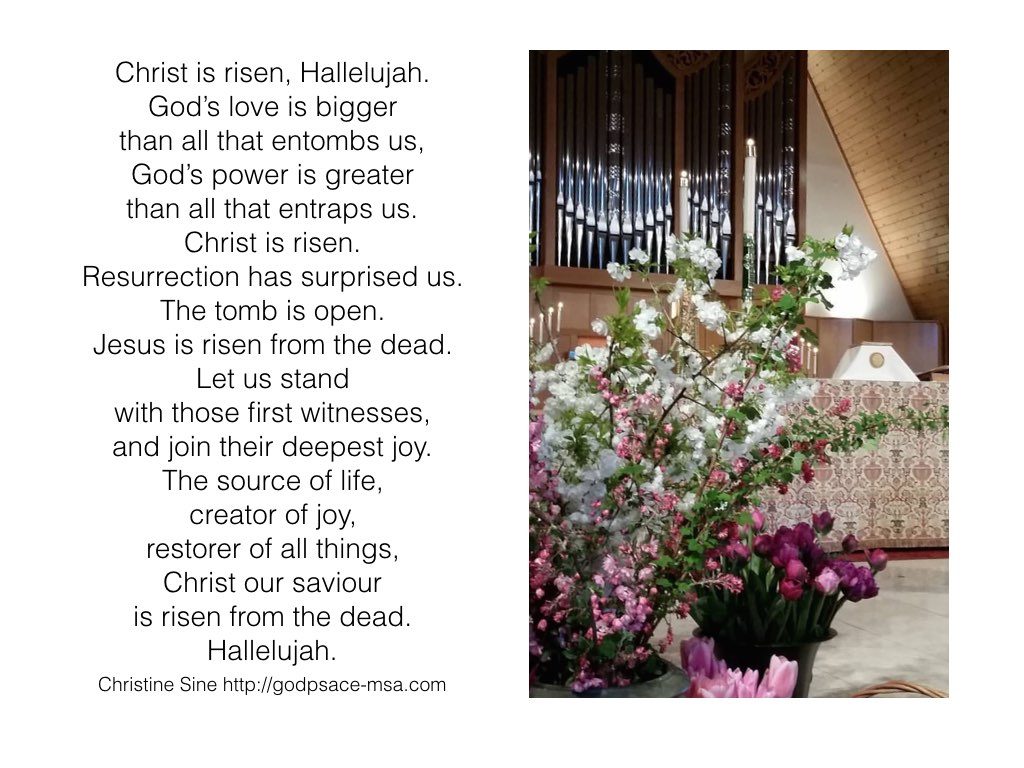by Christine Sine –
It is a week since Easter Sunday. We have celebrated the resurrection and now it seems we are back to life as usual. Just as the disciples returned to their nets, unsure what to do with the rumours of jesus resurrection, we are unsure what do do with resurrection in our own lives.
These pivotal days of our faith seem to make little difference in the way we live. Why I wonder? Why aren’t we transformed by the resurrection?
Sometimes I think it is because living into the resurrection seems so overwhelming for us. We think we need to dash off to be a missionary in some other part of the world. Or we need to give up the job we love to work with the homeless in the inner city. Or we need to sell all our possessions to live with the poor.
Yet that is not what resurrection is all about. As Lynne Baab commented in Spiritual Practices for the Easter Season, this is a season of light and joy. Light and joy don’t take spectacle to live out. Jesus did such mundane everyday things in the days of his reappearance and must have looked very ordinary and unassuming too.
What is your response?
What do you think resurrection living looks like for you? Take some time to reflect on your life and how it has been changed by your relationship with Christ. What are the daily, weekly and seasonal activities that you feel most represent resurrection living. Are there changes you sense God may be asking of you this Easter season?
The risen Jesus seemed like a very ordinary person. If we were in charge of his PR campaign there would have been neon signs in the sky, interviews on CNN, audiences with world leaders. Approaching this Jesus would have been impossible, and following in his footsteps totally unimaginable. But that was not how Jesus came.
- He came to Mary as a gardener not as a king. He was so ordinary that she did not recognize him at first, after all who really looks closely at the servant who tends the gardens?
- He made breakfast on the beach for his friends. Again it took them a while to recognize him. And it needed a bit of a miracle – 153 large fish weighing down their nets – for them to truly see who he was. Perhaps their eyes skimmed past him because of the ordinariness of how he looked and how he acted.
- He came as a stranger and walked for a whole day explaining the scriptures to a couple of his disciples before they recognized him. A stranger who walked rather than riding in a carriage is hardly a king, let alone the risen son of God.
- He comes to the disciples, afraid and hiding behind closed doors. He let them touch him, calmed their fears and sent them out to change the world.
Resurrection living is not complicated. It is about ordinary people doing ordinary things just as Jesus did – simple acts of hospitality, companionship to the fearful, talking to strangers.
What is your response?
Watch the video and reflect on your own life. How could you more effectively live into the resurrection at this season? Are there situations in which you could offer breakfast to your colleagues or friends? Or perhaps you could take some kids out for a hike, talk to them about their life concerns and answer their questions. Or maybe their are strangers at church whom you could ask out for a cup of coffee and a chat. The possibilities are endless. How could you practice resurrection today?
By Andy Wade –
Our Lenten journey is over. We’ve navigated the dark places and walked through the events of Holy Week. We have seen the resurrection. After waiting 40 days to celebrate, our temptation is to jump right in to resurrection – to it’s time to party! “He is risen! He is risen, indeed!”
The problem comes when we embrace the resurrection while forgetting the journey that brought us there. To fully practice resurrection I need to embrace all that came before. To live into the truth of resurrection, the fullness of this reality, is more than a mental exercise. It involves my entire being… in the context of the whole creation around me.
In the excitement of the resurrection it’s easy to forget the bigger reality beyond “personal salvation”. Put in the context of Jesus’ own life and words, however, jumping to that sole conclusion is done at the cost of missing the fullness of what God has offered. So what’s really going on?
Jesus enters Jerusalem humbly riding on a donkey (coming in peace). The people are shouting triumphant praise; here comes their conquering king! But their idea of how this would happen was way off base. Along the way Jesus pauses, weeping and looking out over Jerusalem, and reflects, “If you, even you, had only known on this day what would bring you peace—but now it is hidden from your eyes.” Immediately after entering the city Jesus goes into the temple and drives out those who had turned the temple courts into a holiday bazaar.
This past Palm Sunday I was struck by this contrast; the people recognize that Jesus is some kind of king who will shake things up, perhaps even the Messiah! But the fullness of what God is up to in Jesus is somehow hidden from their eyes. His disruption of temple business at the height of Israel’s holy season is another indictment of just how much they didn’t understand.
These things, and so much more, give me pause. I want to rush to resurrection. Like those following Jesus into Jerusalem that Palm Sunday I want to say, “I get it!” and start living into my meager understanding. But if Lent and Holy Week have taught me anything, it’s just how much I don’t understand.
If the blindspot of Jesus’ followers that Palm Sunday was believing that he was coming as a conquering military king to overthrow the Romans, perhaps our blindspot in modern western Christianity is believing that Jesus came merely to save individuals from sin for heaven. “Do you know Jesus as your personal Lord and Savior?” “Have you prayed the ‘sinners prayer’?”
For me, the Lenten journey is a life-long process, one of walking with others, indeed the whole creation, in following the “pioneer and perfecter of our faith” (Heb 12.2). Life is kind of a Lenten journey of resurrection living – two realities commingled, as we attempt to live into the mystery of God and God’s purposes for all creation.
Salvation in Jesus is not just some theological construct of right belief, as if belief and actions could be divided. Salvation is rather a mind-blowing expression of God’s intention to make all things flourish as God brings all things together – things in heaven and things on earth – in Christ Jesus. (Eph. 1.9-10, Col. 1.19-21, Rom. 8.20-24).
This reality is driven deeper by exploring the meaning of two central words, peace and salvation, or rather, Shalom and sozo. Shalom, which we narrowly translate as “peace”, and sozo, the word we normally translate as “saved”, have much broader implications than our simple English rendering can grasp.
These two words are central to the work of God throughout history and in the world through the cross and resurrection. Both words attempt to contain the complete desire of God for all creation: wholeness, harmony, restoration, rescue, freedom, unity, and so much more. The Year of Jubilee, commanded by God and proclaimed by Jesus, represented the actions behind those words. And the resurrection proved that the time of jubilee had arrived.
Practicing resurrection, our theme on Godspace this Easter season, requires that I embrace all of these things. Before I act, I must listen. I must hear the song of shalom and sozo and jubilee as it rings through the ages and bursts forth from the empty tomb. I must hear its song not only as deeply personal, but also as a tune filling the whole creation. I cannot practice resurrection alone.
So I invite you to join me in listening, drinking deeply from the well of shalom made possible in Jesus. I invite you to look around at your family, friends, neighborhood, city and world and ask what shalom and sozo and jubilee mean for them. And ponder the creation: the donkey that carried Jesus, the wine and the bread – gifts from the earth, even the soil that soaked up the blood of the one who died to reconcile all things to himself. Then, perhaps, we’ll be ready to truly live into the profound purpose of resurrection in ways that release the fullness of God’s love into the world.
By Rowan Wyatt
According to the Oxford English Dictionary a fool is “A person who acts unwisely or imprudently; a silly person” and from a historical perspective “A jester or clown, especially one retained in a royal or noble household”
Today in the UK we ‘celebrate’, for want of a better word, April Fool’s Day. Going back to the days of Chaucer (and beyond into Pagan times) from midnight to midday on April 1st it is customary to prank and joke our way through the morning, making ‘April Fools’ of our victims we hilariously trick. But if we continue our japery past midday we ourselves become the fools, and no one wants to be a fool……do they?
King David was bringing the Ark of the Covenant back to the city of David amidst great pomp and circumstance. Musicians where playing, tambourines were banging, the crowd cheering and so consumed was David that he began to dance wildly at the head of the procession, wearing nothing but a linen ephod, a ceremonial garment similar to a tabard. His wife Michal, daughter of Saul, watched him through her window and was embarrassed and despised him for what he was doing. 2 Samuel 6:14-20.
I used to think that this was the very first instance of someone being a fool for God, and very dramatic it seemed to me when I first read it. Here was a king, respected and venerated by his people, kicking up a storm and dancing with abandon, wearing very little and probably leaving onlookers very open mouthed… including his furious wife. I was impressed! As someone who as a young man, always tried to kick down convention, I found something that resonated in me and whenever I read those verses I always fist pump and say ‘Go David’! In fact, when I was a regular Worship Leader I used to lead the people in the song ‘Undignified’ by Matt Redman, and would break convention by dancing whilst playing guitar during this song, and yes I got many tuts and sour looks from a number of the congregation.
Investigation into the Bible brings up many instances of Gods people being Holy Fools, being mocked for their faith and what they are trying to achieve, Isaiah and Ezekiel for example. Moses knew he was going to face ridicule from Pharaoh and the Egyptians, even the Israelites he was trying to rescue mocked him. Jesus himself was mocked on many occasions, most notably when he was on the cross. Mocked, despised, spat upon.
St Francis was a typical example of someone you could describe as a fool for Christ, but it is one of his followers, St Juniper, who really shone in this regard. He would often give away his clothes to the needy, leaving himself naked, would steal food to give to the hungry and once gave away the altar bells to a poor woman. Even his brother monks got fed up with his foolishness. But I say what utter and absolute holiness, to actually give away everything, even your clothes, to the poor, just as Jesus had said to do.
But it is Paul who brings this matter up most succinctly 1 Corinthians 1:18 ‘For the message of the cross is foolishness to those who are perishing, but to us who are being saved it is the power of God’.
Yes! As Christians in this modern age we are seen as fools for our faith. Daily we get the same comments, jokes and guffaws aimed in our direction. Its tiring, annoying and to a hot blooded Welshman like me can tempt one to rage. But Looking at the message from Paul brings this into stark reflection. We are not the fools. They are the ones playing a joke past midday on April 1st the joke is on them. We may look foolish, dancing in Church, raising our hands in Worship, singing loudly when our singing voice should carry a hazard warning, giving our money and time freely but in fact there is nothing foolish about it.
King David danced out of devoted love for God, Jesus endured mockery out of devoted love for us and in turn we seem foolish to others for our devoted love for Him. So if being a fool is to love Christ and my fellow man I am quite happy to be called one. Are you?
by Tom Sine
I am very excited to announce the release of my new book: Live Like You Give a Damn! Join the Changemaking Celebration In it I bring some very good news. God is raising up a new generation, largely outside the church, that is bring impressive change to the lives of our neighbors locally and globally by creating innovative forms of social enterprise and community empowerment. The even better news is that those of us within the church can join this changemaking celebration. We can discover creative new ways God can use our mustard seeds to make a more remarkable difference than we ever imagined possible.
In this book I offer practical ways that you can join those who are creating their best communities, their best world, and in the process their best lives. In fact, I hope to show you that in a world changing at warp speed, following Jesus is a “design opportunity.” It is not only an opportunity to design innovative ways to make a difference but also an opportunity to create lives with a difference, in the way of Jesus, that are simpler and more sustainable—and to throw better parties along the way. Why would anyone want to settle for less and miss the best?
Live Like You Give a Damn! Join the Changemaking Celebration is available for pre-order until April 16th through the MSA website for an amazing 40% discount. Make sure you order your copy now.
Follow Tom and what’s happening on the innovative edge
on his new blog: newchangemakers.com
on facebook: follow Tom Sine or join the new changemakers.
And join us in the changemaking celebration.
By Nils Von Kalm
God’s Gift to a Broken World
We live in a world of immense suffering, and whether we call ourselves Christian or not, we are often faced with the universal question of why such suffering occurs in a world which was made by a good and loving God.
At Easter we remember that when Jesus was dying on the cross, he also asked why, and then said “into your hands I place my spirit.” It was an act of trust that God is good despite what we see around us.
In our society we are bombarded with the message every day of our lives that life is found in having more. Gordon Gekko’s “greed is good” mantra from the heady days of the late 1980s is the philosophy we are encouraged to live by today. Yet study after study shows that having more material goods and money doesn’t make us any happier.
The American psychologist Martin Seligman has conducted research showing that the rate of depression in Western nations has increased tenfold since the Second World War ie. we now have ten times the amount of people who are depressed than we had seventy years ago.
On top of that, Brene Brown points out that we are the most in-debt, obese, addicted and medicated people in history. All this is during a period in which we have never been wealthier. Something is not adding up.
And if that is not enough, our affluent way of life is leading to a greater gap between rich and poor, as well as to the dreaded spectre of a changing climate. No wonder the author and pastor Brian McLaren calls our way of life the ‘suicide machine.’
It’s all depressingly bleak, and enough to drive you to despair. But thank God for Easter, when we remember that Jesus identifies with our pain and with our questions. But it’s more than that. If that is all he did, we wouldn’t have any lasting hope. In Jesus, God came to earth not only to die for our wrongs, but to reconcile all things to himself. Again though, if that is all there is, there still wouldn’t be any hope. The New Testament is open about this. The apostle Paul says that if Christ was not raised from death we are to be pitied more than anyone.
Christian faith lives or dies on the physical resurrection of Jesus as a historical event. If Jesus was not raised, then Christian faith is pointless, as death would not have been defeated and life is meaningless. But our joy and hope come from faith in Jesus, that as well as dying on Good Friday, he was raised on Sunday. As Nick Cave sings, death is not the end. And, as only he can, American preacher Tony Campolo adds, “it’s Friday but Sunday’s a-comin!”
Hope is alive. There is no line on the horizon; heaven and earth are slowly overlapping. There is no reason to despair and there is nothing to fear. The Christian message says that it is because of the resurrection of Jesus on that first Easter morning that we have hope that death will not triumph in the end. Life, justice, peace, hope and love will triumph. Nothing is surer.
Through the life, death and resurrection of Jesus, we are shown how to live, we are offered forgiveness for our many wrongs, and all things are reconciled to God. All things. Our hearts, so we can be at peace with God; our society, so we can live at peace with each other; and the rest of the whole created order, so we can live at peace with it.
To the question of why God doesn’t seem to be doing anything about the suffering and pain in the world, we can assuredly say that God already has. Through the life of one man, we see a glimpse of the wonderful kingdom come; through the death of that one man on a dark Friday afternoon, we are offered forgiveness for our wrongs; and through the resurrection of that one unique man on the most wonderful Sunday morning in history, all things are made new.
One day everything will fit; it will all make sense. And it will all be because of Jesus. And we get to live this resurrection life here and now, working with God to renew the world, living out the compassion of Jesus, and standing in the tradition of the prophets to work for a world in which one day everything will be made complete. That is the hope of Easter. May you have a blessed one.
By Lynne Baab
Did you know that in many times and places in Christian history, Easter has been viewed as a season, not just a day? The Easter season goes from Easter Day to Pentecost Sunday (May 15 this year), a period of seven weeks. Because Jesus’ resurrection is such a huge, amazing, overwhelming, fantastic gift to us, focusing on it for seven weeks allows time to ponder many aspects of what we receive on Easter Day.
The liturgical color for the Easter season is white to reflect the holiness and purity of Jesus, which enabled him to die in our place. White also symbolizes light. Jesus submitted to the darkness of the grave, and Easter morning he came back into the light, and his own light was again revealed. Paintings of Jesus after the resurrection often show him surrounded by light.
What spiritual practices are appropriate in a season of light and joy? This is a season of feasting, not fasting. Celebrate joy and light in whatever ways you can. Ponder, journal or talk with others about the joyful events of Easter and what they mean for you. Here are some suggestions for spiritual practices for the Easter season:
- Practice thankfulness. Watch for God’s good gifts in your life and your loved one’s lives. Look for signs of Jesus’ resurrection life in events and people around you. Go out of your way to express gratitude and love to people who have cared for you. Pay attention to the small gifts of daily life, and thank God for them. To help you pay attention, consider starting (or re-starting) a thankfulness journal and commit to adding five items to the list each day. Or partner with others to talk through the things you’re thankful for every day. Be sure to pray your thanks as well.
- Focus on light. Watch for the word “light” in scriptures, praise songs, hymns and poetry. Write a poem or statement about the ways Jesus is your light, and ask for further light in specific areas of your life and in the lives of loved ones. Use various names for God and Jesus in breath prayers: “Lord Jesus Christ, light of the world, shine your light on me” (John 8:12). “Jesus, bright morning star, guide my steps” (Revelation 22:16). “Word of God, be the lamp to my feet and the light on my path” (Psalm 119:105). “Lord God, sun and shield, give me your light and protection” (Psalm 84:11). All of these prayers can be prayed for others as well as for yourself.
- Ponder the fact that Jesus has freed “those who all their lives were held in slavery by the fear of death” (Hebrews 2:15). In what ways has Jesus freed you from that fear? In what ways would you like to experience more freedom? What do you think that might look like? Journal or talk with a friend about the role fear of death has played in your life. Pray your thanks, and pray for further growth in this area.
The seven-week Easter season nudges us to look at life through the lens of resurrection power. Maybe you’ll think of additional ways to do that.
Bless the Lord, O my soul.
O Lord my God, you are very great.
You are clothed with honor and majesty,
wrapped in light as with a garment (Psalm 104:1).
by Christine Sine
It is the day after Easter and I sit here in the glow of the resurrection, immersed in its joy and surrounded by its celebration. It is hard for us, with our foreknowledge of the events of Easter Sunday, to comprehend the incredible joy the women who came early to the tomb must have felt. They came with heavy hearts and eyes swollen and red with weeping but left with joy and dancing. Resurrection had broken into their lives.
Can you imagine Peter, coming to the tomb riddled with guilt because of his betrayal of Jesus. He too was surprised by resurrection, not just encountering the risen Christ, but seeing that new life emerge in himself as he wept tears of repentance and joy.
I can imagine, around them, spring bursting into bloom too, reminding these first disciples and a constant reminder to us that resurrection was always part of God’s plan from the beginning of time. Resurrection surprises us, but it never surprises God. The Easter season does not end with Easter Sunday however. And Easter does not end with the Easter Sunday. It extends until Pentecost and celebrates both the resurrection of Christ and also the many ways the resurrected Christ comes to meet us.
What is Your Response?
Sit for a few minutes breathing in and out quietly. Watch the video below. Reflect on your own experiences over the season of Easter. In what ways have you been surprised by resurrection? What new things are you aware of that are emerging into life? How does God ask you to nurture them into maturity in this ongoing Easter season?
As an Amazon Associate, I receive a small amount for purchases made through appropriate links.
Thank you for supporting Godspace in this way.
When referencing or quoting Godspace Light, please be sure to include the Author (Christine Sine unless otherwise noted), the Title of the article or resource, the Source link where appropriate, and ©Godspacelight.com. Thank you!

